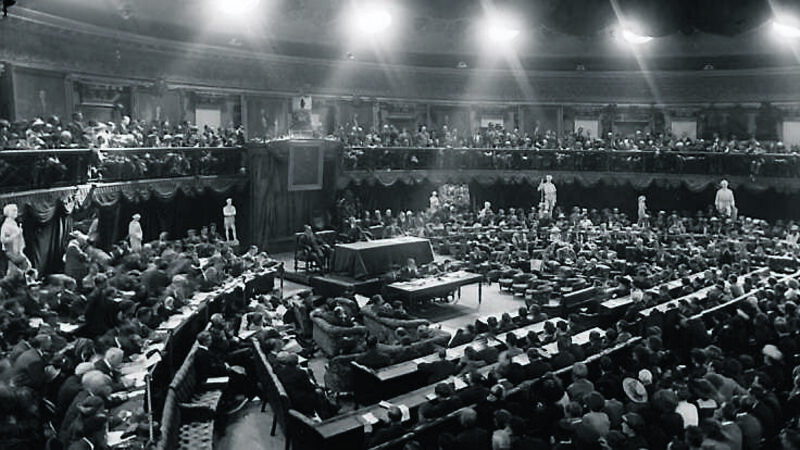Tension of Treaty debates and tragedy of civil war relived at Mansion House

The momentous Dáil Éireann Treaty debates late in 1921 have been recreated for a drama-documentary to be broadcast in December.
"I have been branded a traitor," came the roar.
The charge was famously blasted by Michael Collins to Éamon de Valera and his supporters during the Anglo-Irish Treaty debates just as the country was about to be plunged into the Civil War.













